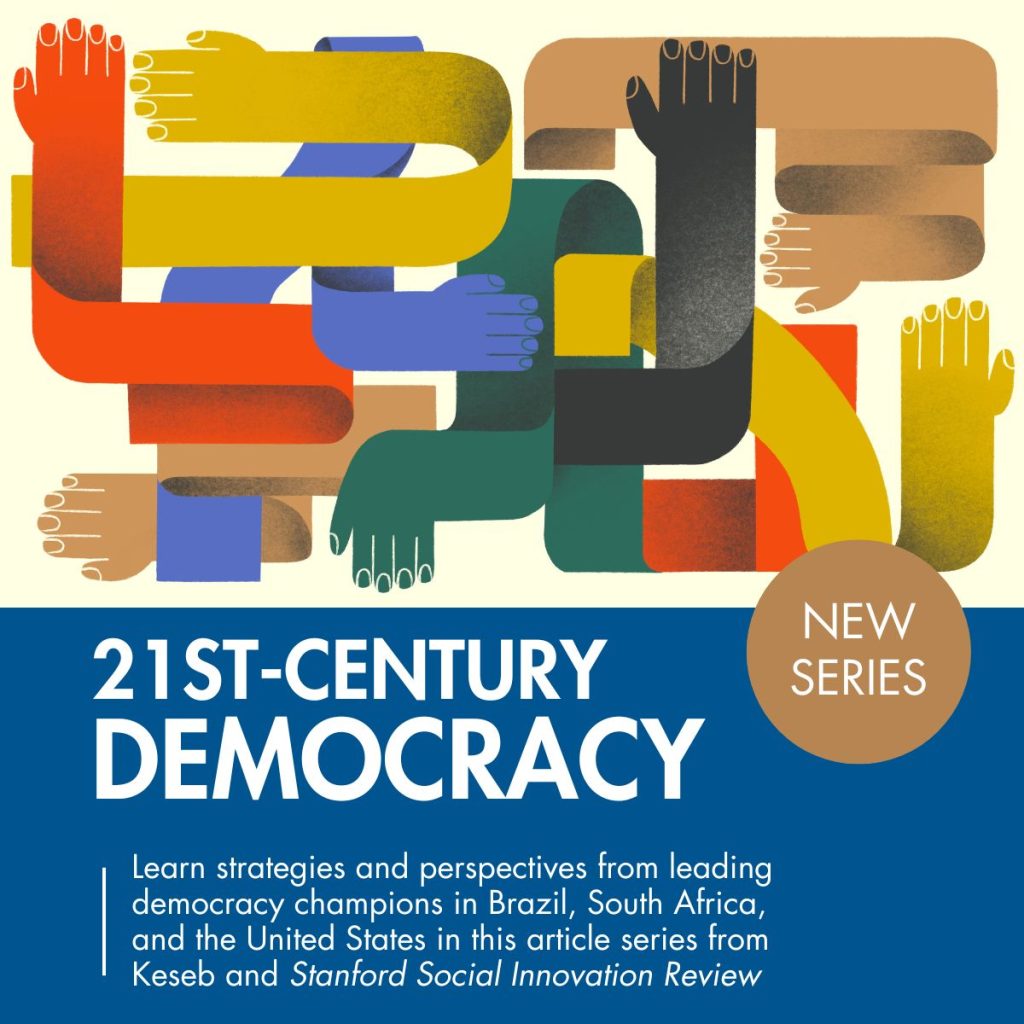
Keseb has launched a new essay series featuring contributions from prominent democracy advocates in Brazil, South Africa, and the United States. The series highlights effective nonpartisan strategies for advancing democracy by showcasing local and national solutions and encouraging cross-border collaboration among democracy champions.
Keseb is an organization dedicated to strengthening democracies worldwide by supporting and connecting democracy entrepreneurs. It supports and connects democracy entrepreneurs—innovators who create new models, tools, and approaches to bolster democratic resilience. By fostering collaboration and knowledge-sharing among these leaders, Keseb aims to build a global ecosystem of pro-democracy champions working to develop sustainable and inclusive democratic practices.
You can more about their work here.
The series opens with “Weaving Democracy Entrepreneurship Across Borders,” by Yordanos Eyoel and Andrew Clarke, which emphasizes the importance of cross-contextual learning for innovation in the pro-democracy field.
It argues that democracy entrepreneurship can drive impactful solutions and that international collaboration is essential to sharing and scaling these innovations.
In “Ensuring Free, Fair, and Trusted Elections,” authors Farbod Faraji and Flávia Pellegrino draw lessons from recent experiences in Brazil and the United States. They explore strategies for countering election corruption by authoritarian leaders and outline sustainable approaches to protect electoral integrity.
Lindiwe Mazibuko, Tainah Pereira, and Erin Vilardi co-author “Building a Truly Reflective Pro-Democracy Public Leadership,” which calls for the development of leaders who not only represent their diverse constituencies but are also capable of transforming the conditions under which they govern. The essay advocates for a more inclusive and adaptable approach to public leadership.
“Grassroots Strategies to Combat Election-Related Misinformation,” by Gabriel Marmentini and Jeanine Abrams McLean, highlights the effectiveness of localized community engagement and civic education in countering misinformation. The authors emphasize that these grassroots strategies are crucial complements to broader national and international regulatory efforts.
Finally, “Invigorating and Expanding Civic Power,” authored by Áurea Carolina, Tessa Dooms, and Julian Walker, urges democracy advocates to empower civic agency through strategies that prioritize inclusivity, people-centered governance, and responsiveness to citizens’ needs.
You can find the submissions on this link.

